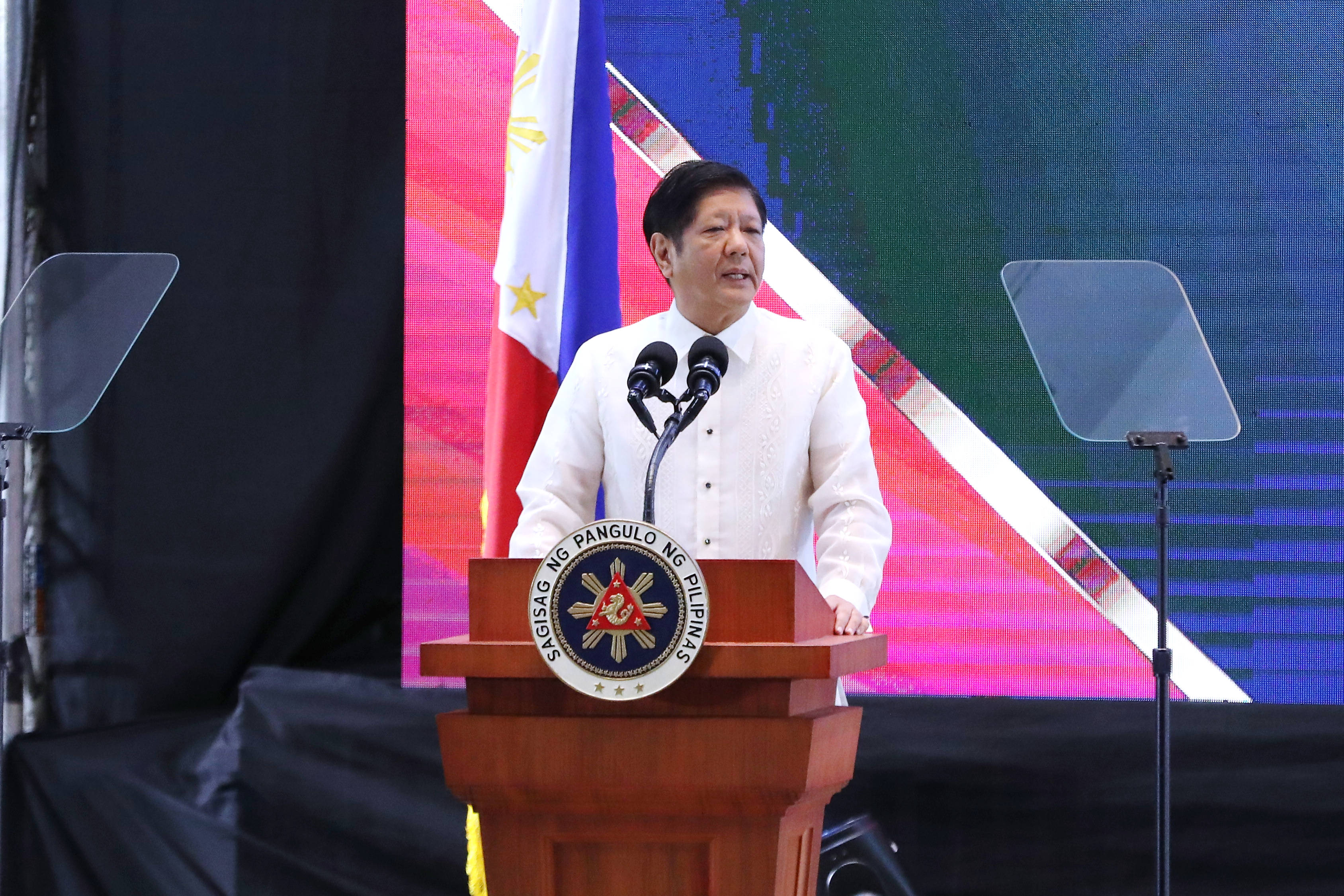Thank you very much, Transportation Secretary, Secretary Jimmy Bautista; the Excellencies of the Diplomatic Corps who have joined us here this morning; Migrant Workers Secretary Susan V. Ople; the Labor and Employment Secretary Benny Laguesma; other members of the Cabinet; foreign ministers and policymakers who are with us today; the officers and members of the International Chamber of Shipping led by Chairman Emanuele Grimaldi; heads of civil societies and international organizations; officers and members of the Filipino Shipowners Association and to all seafarers across the globe; my fellow workers in government; partners from the private sector; other distinguished guests; ladies and gentlemen, good morning.
It's with some gratitude that I am here to join you and this International Chamber of Shipping and the Filipino Shipowners Association, and I thank them for organizing this extremely important gathering.
I am pleased to join you all today to discuss the many ways that we will shape the future of our shipping and seafaring industries.
For over a millennia, shipping and seafaring have aided the way we transport goods, people, and ideas to distant shores. It is through these maritime endeavors that our world has become smaller and more connected, creating the solid foundation of the globalized and interconnected world that we all live in today.
Now, we find ourselves at a turning point for this very crucial sector. In recent years, the entire transportation industry — including shipping, of course — is undergoing a huge transformation marked by the coming of new and sustainable fuels as well as the increasing deployment of digitalization and automation.
To facilitate this shift, there is a need for the shipping industry to adapt and integrate new developments into their fleets, starting with the retooling of existing ships and the building of newer and more modern ships equipped with these new technologies.
Of course, another central part of this change necessarily includes investing in a highly qualified and well-trained workforce that will build, maintain, and man these shipping vessels and sail towards other opportunities.
This, along with many others, will be among the issues that we will be tackling in this gathering so that the future will be smooth sailing for everyone.
With all hands on deck, we must come together to envision and shape the future of the industry and global trade for the next 25 years.
We can do this by identifying the skills required for the new generation of ships, discussing education and training requirements, and committing to a fair and just transition to build a future-ready and resilient shipping industry.
Here in the Philippines, we are proud of our maritime heritage. We are also proud of the title as the Seafaring Capital of the World with more than half a million Filipinos braving the vastness of the seas, comprising a quarter of the global maritime workforce.
We are also grateful for the opportunities that our seafarers have created and are thankful for the wealth that they have brought home.
I thus ensure everyone that this government will continue strengthening maritime-related policies and protecting our seafarers and their loved ones.
As President, I reiterate my directive to the Maritime Industry Authority and the Commission on Higher Education to work closely with the shipping industry on the upskilling and reskilling of Filipino seafarers to prepare them for the shift of ocean-going vessels from using conventional fuel sources to green ammonia between 2030 to 2040.
Moreover, I enjoin all national government agencies, [multi-lateral] organizers, and private stakeholders to work together in identifying strategies to ensure the availability of skilled workers to fulfill the requirements of the shipping industry. This is expected to significantly increase by the year 2050.
2050 may sound distant for now, but in the language of the seas, it will arrive in almost a heartbeat.
Thus, it is vital that we now embark on a long-term, tangible, and sustainable effort that will address the many demands of the maritime sector in the years to come.
I am confident that, with all of us working together, we will navigate the turbulent tides ahead and chart a course towards a stronger and sustainable tomorrow for seafarers and the global community.
May the winds be fair and the seas be kind to us as we embark on this journey together.
Thank you all very much and good morning. [applause]
--- END ---
Watch here: Shaping the Future of Shipping-Seafarer 2050 Summit
Location: Forbes Ballroom, Conrad Manila in Pasay City




